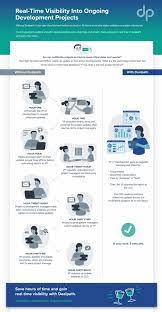Maximizing Efficiency with Real Estate Development Software Solutions
The Power of Real Estate Development Software
In the fast-paced world of real estate development, efficiency and accuracy are key to success. This is where real estate development software plays a crucial role in streamlining processes, improving collaboration, and maximizing project outcomes.
Streamlining Project Management
Real estate development software offers robust project management tools that enable developers to oversee every aspect of a project from start to finish. From initial planning and budgeting to construction management and sales tracking, these software solutions provide a centralized platform for managing tasks, timelines, and resources.
Enhancing Communication and Collaboration
Effective communication and collaboration are essential in real estate development projects involving multiple stakeholders such as architects, contractors, investors, and buyers. Real estate development software facilitates seamless communication through features like file sharing, messaging platforms, and real-time updates on project progress. This fosters collaboration among team members and ensures everyone is on the same page throughout the project lifecycle.
Optimizing Financial Management
Financial management is a critical aspect of real estate development that can make or break a project. Real estate development software offers tools for budgeting, forecasting, expense tracking, and financial reporting. By providing insights into costs, revenues, and profitability projections, developers can make informed decisions that optimize financial performance and mitigate risks.
Utilizing Data Analytics for Informed Decision-Making
Data analytics capabilities embedded in real estate development software allow developers to leverage data-driven insights for strategic decision-making. By analyzing market trends, demand forecasts, pricing models, and other relevant data points, developers can identify opportunities, assess risks, and tailor their strategies to meet market demands effectively.
Conclusion
Real estate development software is a powerful tool that empowers developers to streamline processes, enhance collaboration, optimize financial management, and make informed decisions based on data analytics. By leveraging these advanced technological solutions, real estate developers can drive efficiency, improve project outcomes, and stay ahead in a competitive industry.
Top 5 Features to Look for in Real Estate Development Software
- Choose a software that offers project management tools to help you stay organized and on track.
- Look for software with financial analysis features to help you make informed investment decisions.
- Select a platform that provides collaboration tools for seamless communication with team members and stakeholders.
- Consider software that offers 3D modeling capabilities for better visualization of your real estate projects.
- Ensure the software is scalable and can grow with your business as your real estate development projects expand.
Choose a software that offers project management tools to help you stay organized and on track.
When selecting real estate development software, it is essential to prioritize options that provide robust project management tools. These tools are invaluable in keeping developers organized and on track throughout the project lifecycle. By utilizing project management features such as task tracking, timeline management, resource allocation, and collaboration tools, developers can streamline processes, improve efficiency, and ensure that projects are completed successfully within set timelines and budgets. Choosing software with strong project management capabilities is key to achieving optimal outcomes in real estate development endeavors.
Look for software with financial analysis features to help you make informed investment decisions.
When considering real estate development software, it is essential to prioritize solutions that offer robust financial analysis features. These tools can provide valuable insights into investment opportunities, helping developers make informed decisions regarding project feasibility, profitability projections, and risk assessment. By leveraging software with advanced financial analysis capabilities, developers can enhance their investment strategies, optimize resource allocation, and ultimately maximize returns on their real estate development projects.
Select a platform that provides collaboration tools for seamless communication with team members and stakeholders.
When choosing real estate development software, it is essential to select a platform that offers collaboration tools for seamless communication with team members and stakeholders. By utilizing such tools, developers can enhance teamwork, share information efficiently, and ensure that everyone involved in the project is well-informed and aligned. Effective communication and collaboration are key to successful real estate development projects, and selecting a software platform with robust collaboration features can significantly improve project outcomes and overall efficiency.
Consider software that offers 3D modeling capabilities for better visualization of your real estate projects.
When exploring real estate development software options, it is beneficial to consider platforms that provide 3D modeling capabilities. These features allow developers to create detailed and realistic visualizations of their projects, offering a clearer understanding of the design, layout, and overall impact of the development. By incorporating 3D modeling into the software, developers can enhance communication with stakeholders, make informed decisions about design elements, and ultimately improve the planning and execution of real estate projects.
Ensure the software is scalable and can grow with your business as your real estate development projects expand.
When selecting real estate development software, it is crucial to ensure that the chosen solution is scalable and capable of accommodating the growth of your business as your real estate development projects expand. A scalable software system can adapt to the increasing demands and complexities of a growing business, allowing for seamless integration of new features, users, and data volumes. By investing in scalable software, developers can future-proof their operations and ensure that their technology infrastructure can support their expanding project portfolio effectively.



